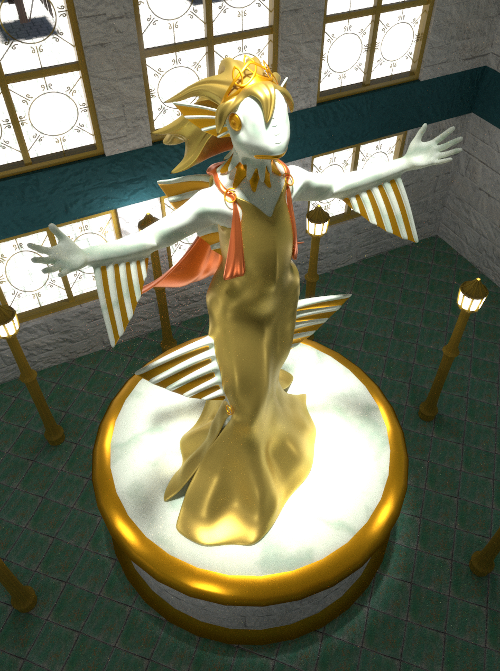Figure Sculptor
Highly esteemed artisans in the Nimýric Empire.
Career
Qualifications
The Nimýrité value naturalistic artworks. Consequently, a figure sculptor is well-versed in the anatomy of people and animals. They also require a profound knowledge of how to handle a wide range of tools and materials, for example how to carve various types of rock without accidentally breaking them, or how to seal surfaces to make them durable and highlight their intrinsic beauty.
Career Progression
Figure sculptors usually spend three years studying art fundamentals at the university. Afterwards, they begin an apprenticeship with a master sculptor to gain the necessary experience and practice more specific skills.
Once they pass the final exam, they have usually built a network of potential customers as well. Those often include wealthy families, the clergy or other people of power.
Payment & Reimbursement
Lifelike statues are in high demand and take a lot of work, especially when they are particularly detailed. Besides the costs of the material, a master figure sculptor can therefore charge hourly rates of up to 65 Pécune.
Perception
Purpose
Naturalistic sculptures adorn many fountains and public buildings all over Nimýric cities. Most temples have statues of the Mother Goddess or even the entire pantheon on display, and important members of society are likely to want at least a bust of themselves sooner or later.
Social Status
Figure sculptors usually come from wealthier families to begin with. Even those who do not are likely to rise in status as their reputation spreads.
Operations
Tools
Sculpting implements range from saws, hammers and chisels for rough work down to fine knives, files and sanding cloth. For the finishing touches, sculptors may also use brushes for applying gold leaf or touches of paint.
Materials
Popular materials for figure sculpting include limestone, various types of marble and sometimes granite. Wood may be used as well, especially in regions which are further away from the mountain ranges.




Comments